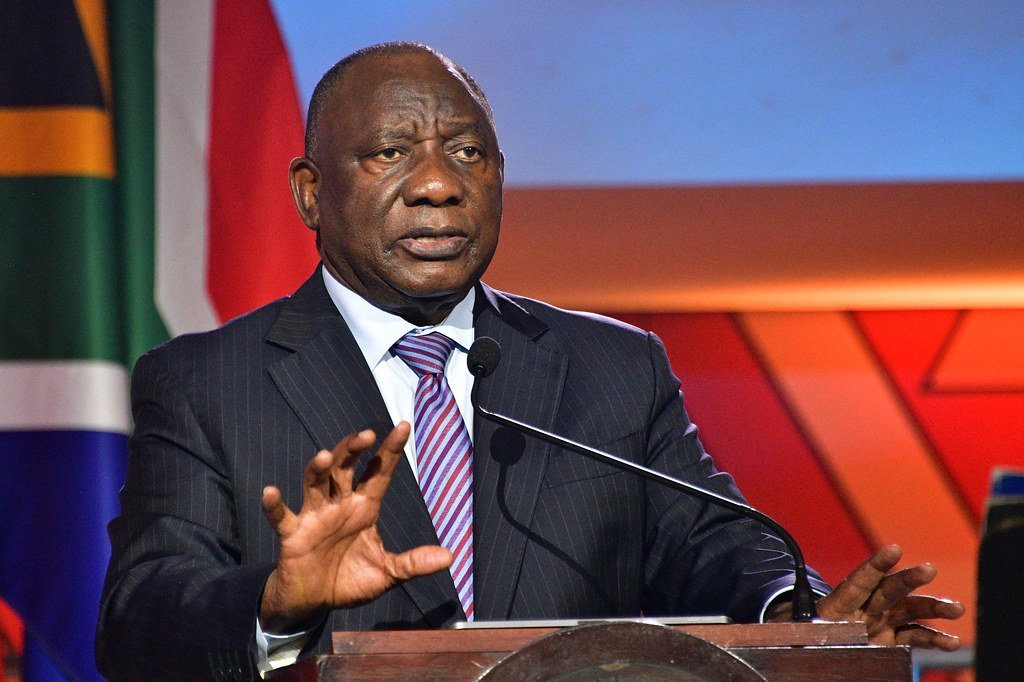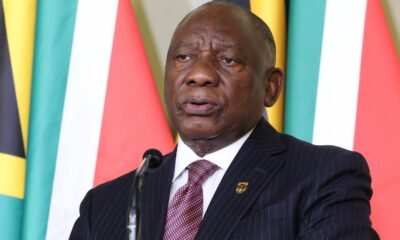News
Did Ramaphosa Break the Constitution by Appointing an Acting Police Minister?

Legal minds clash over whether the President’s latest move is a necessary step or a dangerous overreach.
When President Cyril Ramaphosa placed Police Minister Senzo Mchunu on special leave and named Professor Firoz Cachalia as acting police minister, it might have seemed like just another political reshuffle in a country used to high-level drama. But this one has sparked a constitutional firestorm and it’s not just opposition parties that are upset.
Was this a responsible decision to protect the integrity of the police service? Or did Ramaphosa just rewrite the rulebook?
The Political Earthquake Behind the Appointment
To understand the backlash, we need to rewind to July 6, when KwaZulu-Natal police commissioner Lieutenant General Nhlanhla Mkhwanazi dropped explosive allegations implicating Minister Mchunu and senior police brass in criminal underworld connections.
The fallout was immediate. The President acted or so it seemed. On Sunday night, he announced Mchunu’s suspension, launched a judicial commission of inquiry, and appointed Cachalia, a respected academic to fill the gap, effective August 1.
But there was one problem: Cachalia isn’t a Cabinet minister. And that, say critics, may make his appointment unconstitutional.
A Constitutional Puzzle: What the Law Says
According to the EFF, the move is “a direct violation of Section 98 of the Constitution.” That section allows the President to temporarily assign a minister’s powers to another member of Cabinet, not someone from outside.
Even the Democratic Alliance joined in, slamming Ramaphosa for waiting this long to act on the allegations. But their concern wasn’t just timing, it was legality.
To dig deeper, IOL spoke to three experts and they didn’t all agree.
Legal Scholars: This Could Be Executive Overreach
Dr Tumi Mmusinyane, a constitutional law professor at North West University, didn’t mince words: “This constitutes an executive overstepping of his constitutional powers,” he said.
Mmusinyane explained that while the President can appoint ministers from outside Parliament, up to two, in fact, the Constitution is silent on appointing acting ministers from outside the Cabinet. And that’s the key issue.
“The Constitution allows for assignments of power within Cabinet, not outside. So unless Cachalia is sworn in as a minister, this is on shaky ground.”
He also warned that this must be challenged, likely through a judicial review. “If not tested, this sets a precedent where the President can bend constitutional rules to suit the moment.”
Political Analysts: There Were Other Options
Siyabonga Ntombela, a political analyst, agrees it’s unusual, but not unprecedented. “Deputy ministers can’t act as full ministers because they’re not part of Cabinet,” he noted. “But there were existing Cabinet ministers Ramaphosa could have asked to act, it’s been done before.”
This makes the choice of Cachalia even more curious. Is it because he’s an outsider, untainted by politics and scandal? Or is it a signal, a message that the President wants someone trusted, and above party dynamics, to steady the ship?
Not Everyone Sees a Problem
Not all legal minds agree this is unconstitutional. Willie Spies of Hurter Spies Attorneys believes Ramaphosa acted within his rights, citing the President’s broad powers under the Constitution to appoint ministers “with or without portfolios.”
In his view, Cachalia’s appointment can be justified, particularly if it’s temporary and linked to a broader effort to restore trust in law enforcement.
What’s Really at Stake
Beyond the legalese, this moment raises a bigger question: Can South Africans still trust their institutions?
The police are in the eye of a storm, allegedly infiltrated by criminals, failing the public on service delivery, and now caught in a leadership crisis. Ramaphosa’s appointment of Cachalia, though controversial, may be seen by some as an effort to take control of a runaway situation.
But for others, it’s a power move that bypasses the Constitution and if not challenged, could open the door to more executive freelancing in the future.
Public Reaction: Cautious Applause, Rising Skepticism
On social media, the response has been mixed.
-
@Naledi_Mokoena tweeted: “At least someone finally got Mchunu out the way. But if Ramaphosa is now just picking acting ministers out of nowhere, where does it stop?”
-
@LegalEagleZA wrote: “It’s not about politics. It’s about the Constitution. If we allow this, what else will we allow tomorrow?”
-
@Hope4SA responded: “Cachalia is a decent man. Maybe an outsider is what we need to fix this mess.”
Rule of Law or Rule of Man?
South Africans are tired of commissions that cost billions and deliver little. They want justice, accountability, and police leaders they can trust.
But even the fight for integrity must follow the law. If the President did indeed overstep even with good intentions, it’s a dangerous precedent in a fragile democracy.
The courts may soon weigh in. Until then, the country watches, hoping this moment becomes a turning point, not another constitutional casualty.
{Source: IOL}
Follow Joburg ETC on Facebook, Twitter , TikTok and Instagram
For more News in Johannesburg, visit joburgetc.com



























